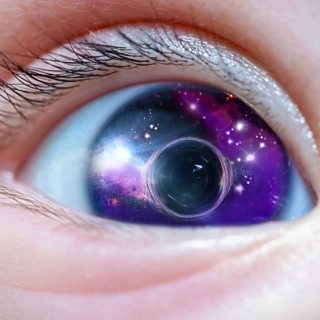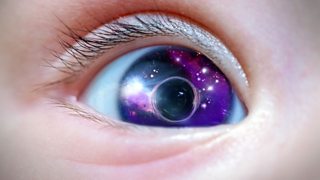Do we all experience time differently?
In the latest series of Tracks, the multi-award-winning drama, we encounter in a mystery that calls into question the very nature of time itself.
Do we all experience time differently from one another? And does time speed up and slow down depending on our mood, activities and experiences?
Famous French philosopher Henri Bergson would say yes (or rather “oui”)…

-
![]()
Tracks: Indigo
Listen to the multi-award-winning conspiracy thriller, written by Matthew Broughton.
Henri Bergson’s theory of time
In the earliest part of the 20th Century the Frenchman Henri Bergson was the most celebrated philosopher of his day, attracting huge audiences to his lectures. His 1889 doctoral thesis was all about time: “Time and Free Will: An Essay on the Immediate Data of Consciousness”. In it he explored the theory that humans experience time differently to the scientific measurement of time – the clock time of technology is not the same as the psychological time we experience.
The science of time is, he posed, based on a misconception. We divide time into discrete, separate, spatial constructs – a second, a minute, an hour – but we do not experience time in this form. Just like a film, what we see is a continuous flow of footage but actually what we are watching is a series of stills.
For us, time is continual. As soon as we attempt to measure a moment, it is gone. And, whereas in science time will forever remain the same, for all of us it can speed up or slow down. Psychological time is subjective.
"They don't stop. They don't ever stop."

Clip from Tracks: Indigo.
Does time pass more slowly when we are younger?
When you were little, didn’t car journeys and the period between festive seasons seem interminable? As adults, however, Christmas is upon us again before we know it. Why is this? (It can’t just be because the TV ads now start in October.)

The thinking is that our perception of time seems to be largely determined by how much information we need to absorb.
When the brain receives information from the outside world it needs to process it. If the information is familiar then very little time is needed for this, but new information requires more processing and this can make time stretch out.
When we were younger so much of what we were experiencing was new, so time actually felt longer.
Does time really fly when you’re having fun?
It’s true that a day larking around with friends can be over before we know it.
The more emotional or the less familiar the experience, the stronger the memory will be.
However, it’s not the fact we’re enjoying ourselves that makes it speed by — simply being happy and content will not necessarily make time pass more quickly — it’s all to do with our attention being occupied.
If we’re fully engaged in an activity or pursuit, multitasking or focused on achieving a goal, then time can seem to fly by. On the other hand, when we’re bored or our mind isn’t occupied we’re less distracted. We end up “clock-watching”, unable to believe how slowly the time is creeping past.
Our perception of time is different after the event
Memory also has an impact on how we perceive time. An exciting holiday will seem to fly by. A week at work, trawling through emails, can drag on and on. However, when you look back on these different periods several months later, your memory will tell you otherwise. The slow and boring week at work will seem shorter in your memory and the holiday will seem like it lasted a lot longer than it did at the time.
This is because memories are formed when we have new experiences, and the more emotional or the less familiar the experience, the stronger the memory will be.
On holiday, because we are experiencing so many new things, we will form lots of robust memories. These act like markers, punctuating the period of time and giving it a sense of duration. Conversely, we may not make many specific memories from a normal, mundane week at work (no one wants to relive back-to-back meetings). Without those markers it will seem like the time passed much faster than it did when we were there, living it.
Do all animals perceive time the same way?
Do we perceive time in the same way as a dog or a giraffe? Probably not. And it could all be down to metabolism.

Most larger animals have a slower metabolic rate, and time passes relatively rapidly for them.
However, smaller animals tend to have faster metabolisms, and experience time passing more slowly.
Ever wondered how a fly can so easily evade a swatting newspaper?
It may be that a fly can distinguish more movement in less time than a human, and that it senses the newspaper coming towards it relatively slowly.
More from Radio 4
-
![]()
Tracks: Indigo
A multi-award-winning conspiracy thriller, written by Matthew Broughton.
-
![]()
A Sense of Time
Does a second feel the same for a fly, a bird, or a swordfish, as it does for me?
-
![]()
Got a minute? Eight interesting facts about time and work
Workers have become increasingly unable to escape the clock.
-
![]()
How to speed up or slow down time
Tips from All in the Mind's Claudia Hammond for changing your perception of time.





